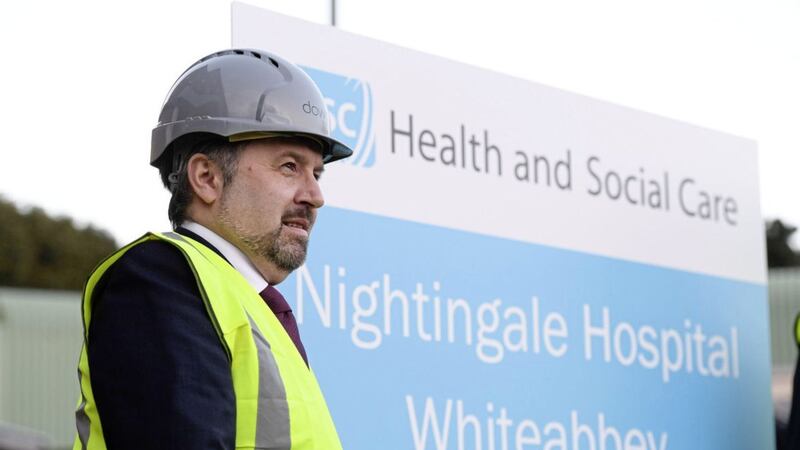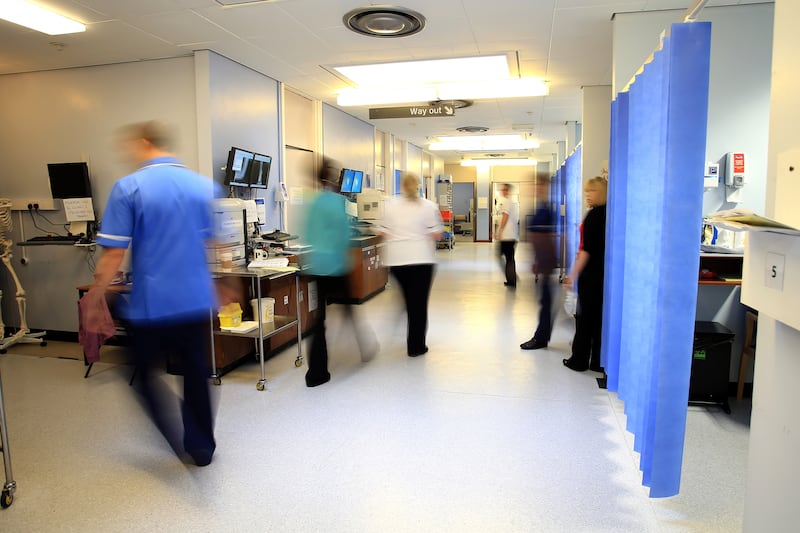THEY say a week is a long time in politics but it would appear to be even longer when pandemic planning is involved.
Last week's shambolic Stormont handling of the next stage in the Covid restrictions went down badly with the general public.
Some members of the DUP treated the updated medical advice like Donald Trump treated the Pennsylvania election count, with a degree of scepticism and the hope that if they pretended it wasn't happening it would just go away.
In the meantime many hospitals are at 101 per cent capacity, with Covid patients filling beds and every available member of staff overstretched and exhausted.
During the first lockdown those of us who could bear to look, watched as hospital admissions and deaths went tragically up and then dramatically down to single figures.
This time the rate of community transmission is falling, but at a much slower rate. Hospital admissions remain high with intensive care unit beds at a premium.
Since the latest restrictions were introduced, with hospitality and close contact retail closed, the R rate has risen.
Additional measures are inevitable as Northern Ireland is now out of step with the Republic and other UK regions, who have all gone for sharper lockdown measures.
The Republic remains on the highest tier of restrictions, similar to the lockdown in Spring, although schools and crèches remain open. That six week lockdown will come to an end on December 1.
England is also currently in a lockdown which is expected to ease up in December.
There has been pressure on the Stormont Executive to align with the south given the implication for Covid cases in border counties, when faced with two different regimes.
It seems, given the DUP change of tone, that pressure may also be coming from Westminster.
The 'lockdown lite' measures have not had the expected impact.
As community transmission continues at a high level, questions were being asked, if churches, non essential retail, gyms and elite sport, need to also be closed to get control of the virus.
As the executive met last night to discuss a way forward they were keen for no repeat of last week's disagreement.
Health minister Robin Swann warned executive colleagues if new measures were not introduced immediately, even a full lockdown in mid-December would not be enough to prevent the health service being swamped by Covid-19 cases.
With just hours to go until legislation regulating businesses fell away, the UUP minister tabled a paper of proposals based on the latest medical advice.
From next Friday, all non essential retail, churches, hospitality and leisure is expected to close for two weeks. Sporting events will also have to be played behind closed doors.
This will of course disappoint those in hospitality who feel they have been unfairly penalised and pours ice cold water on any hope of even 'new normal' socialising in the run up to the festive period.
It also means that close contact retail, such as hairdressers and barbers have a week to make some money before the scissors must be once again be put away.
It remains to be seen whether these latest measures, clearly created under pressure, are too little too late, or if there is finally hope of getting in front of a virus that has devastated lives and livelihoods for almost all of 2020.







